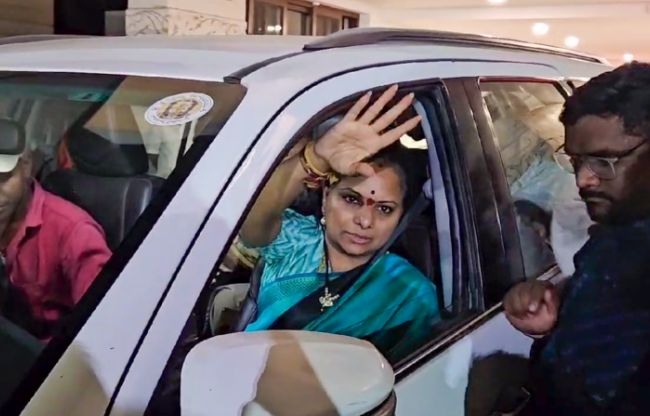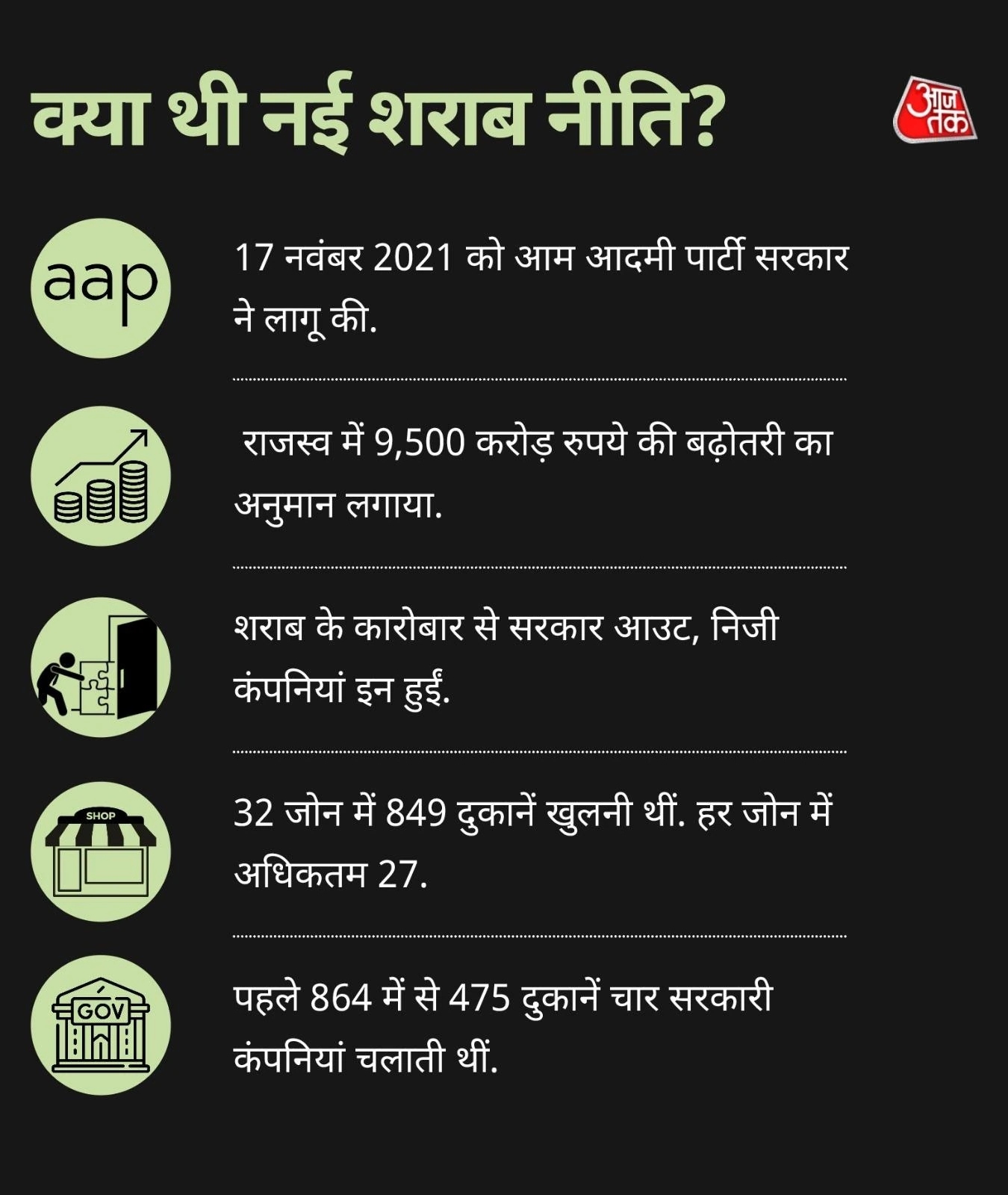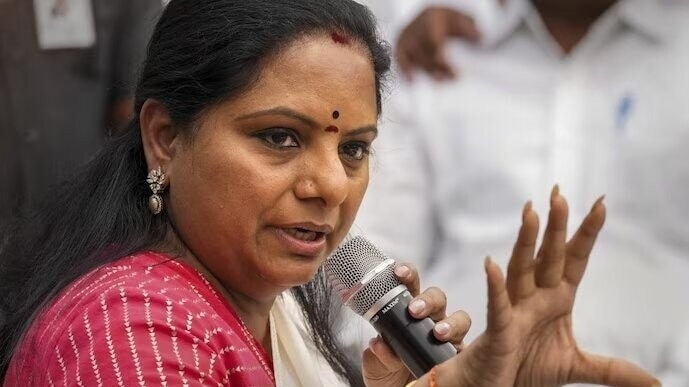The Enforcement Directorate (ED) made yet another high-profile arrest in the alleged liquor scam of Delhi. On Friday, K. Kavitha, daughter of the former Chief Minister of Telangana, was taken into custody.
This is said to be the third major arrest in the scam, which previously saw the detention of Delhi's former Deputy Chief Minister Manish Sisodia and MP Sanjay Singh from Aam Aadmi Party.
Kavitha was apprehended by the ED team at her residence in Hyderabad. Sources indicate that she might challenge her arrest in the Supreme Court. It’s speculated that a hearing regarding her plea against the arrest could take place on Saturday.
A member of the Bharat Rashtra Samithi (BRS), Kavitha has been interrogated multiple times by ED in relation to a money laundering case associated with the liquor scam. It is reported that ED proceeded with the arrest after she failed to appear for questioning despite repeated summons.
The central question arises: How did K. Kavitha, an MLC from Telangana, get entangled in Delhi’s liquor scandal? What are the charges against her?
Linked to the 'South Group'!
ED claims that K. Kavitha was linked to the liquor business's 'South Group' lobby. The South Group played a significant and influential role in Delhi government's excise policy for 2021-22.
It is alleged that accused Vijay Nair received at least INR 100 crores in bribes from the South Group. The group handed this sum to Nair so he could use it to bribe leaders of the Aam Aadmi Party (AAP).
In her last interrogation, ED brought Kavitha face-to-face with businessman Arun Ramchandran Pillai from Hyderabad who has already been arrested. Pillai is considered to be a close associate of Kavitha.
Despite the allegations, Kavitha had claimed innocence, accusing the central government of misusing the ED because BJP cannot enter Telangana through the 'backdoor'.

Source: aajtak
Kavitha's Downfall
Back in December 2022, ED claimed in its remand papers regarding suspect Amit Arora that 'South Group' had provided a bribe of INR 100 crores to individuals acting for AAP leaders.
Subsequently, last year's February saw the arrest of accountant Buchibabu Gorantla by CBI. ED had interrogated Gorantla and recorded his statement. Gorantla was believed to manage Kavitha’s accounts.
Later in March, ED also detained Arun Ramchandran Pillai. During interrogation, Pillai revealed an agreement between Kavitha and AAP involving a financial transaction of INR 100 crores, which facilitated entry of Kavitha’s company 'IndoSpirits' into Delhi’s liquor market.
Pillai also disclosed a meeting where he, Kavitha, Vijay Nair, and Dinesh Arora were present, discussing the recovery of the bribe amount.

Source: aajtak
Understanding Delhi's Alleged Liquor Scandal
On 17 November 2021, the Kejriwal government in Delhi implemented the Excise Policy 2021-22. According to this new policy, the government backed out from the liquor business, and the shops went into private hands.
The Delhi government claimed that the new liquor policy would end mafia dominance and increase government revenue. However, the policy was embroiled in controversy right from its inception and was consequently abolished on 28 July 2022 due to escalating issues.
The scam came to light through a report dated 8 July 2022 by then Chief Secretary of Delhi, Naresh Kumar. The report levied serious accusations against several senior AAP leaders including Manish Sisodia.
Delhi LG V.K. Saxena recommended a CBI investigation following the revelations in Kumar's report, ensuing a CBI case registration on 17 August 2022. The case involved allegations of financial misconduct, leading ED to also register a case for probing money laundering.
The Chief Secretary accused Sisodia, who was also in charge of the excise department, of formulating the excise policy incorrectly. The accusation was that the policy unduly favored licensed liquor merchants.
The report claimed that in the pretext of COVID, the government arbitrarily waived off license fees amounting to INR 144.36 crores. An additional INR 30 crores was allegedly returned to airport zone licensees, which should have been confiscated instead.




